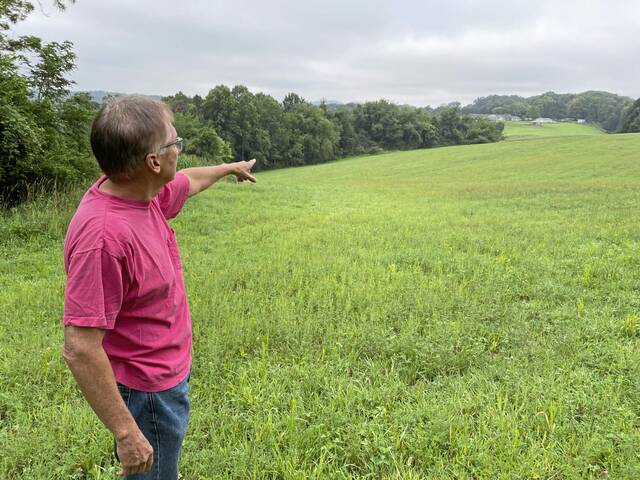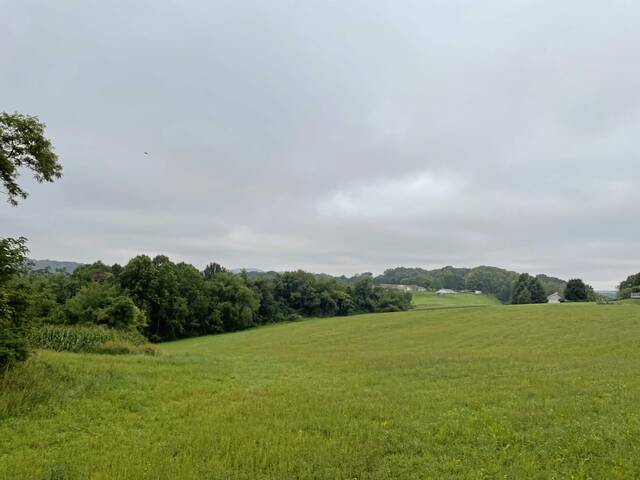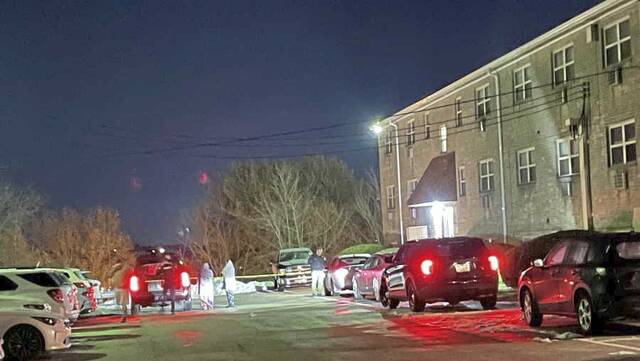Lisa Segina likes the rural feel of her Salem home.
But, as the township considers joining a growing countywide sewage authority, Segina worries Salem will be subject to property development in the future.
Since parting ways with the Crabtree Sewage Authority, the township has relied primarily on taps into the Franklin Township Municipal Sanitary Authority in Murrysville.
Now, looking to launch a project to expand the reach of Salem’s sewage lines, the township is faced with a crucial decision — to “stay in the sewage business” or pass the project to the Municipal Authority of Westmoreland County.
Unlike some of the county authority’s other projects, Salem would not sell its sewage system to the authority. Rather, the authority would maintain and own the new sewage system created through the project.
The township supervisors initially planned to vote on the matter at an Aug. 16 meeting but postponed that because of the limited time to consider the options beforehand, supervisor Kerry Jobe said.
The timeline for the project and the vote are now up in the air, he said.
Segina is cautious about the opportunity to hand over control to the municipal authority.
“We like our rural township,” Segina said, “and if we — in my opinion — let the control go to a larger municipal management company, once we turn it over, they can do whatever they want to do.
“They can bring sewage down my road,” she said. “I have to tap into it or they put a lien on my property or they claim eminent domain like the gas companies have done and they ruin my property — drive down the value and, potentially, since I’m at retirement age, push me out of my own home, because I can’t afford to pay the frontage.”
An agreement between the township and the county authority sat dormant for the past six months, said Salem solicitor Gary Falatovich, but it has received new energy because of the availability of state and federal funding.
“Those (infrastructure development) monies are not going to be around forever,” Falatovich said at a meeting Aug. 9. “Based on information we got from our grant consultant, now is a prime opportunity to reach out for funding — both on a state and federal level — to get the type of funding that might be necessary to construct this project.”
Conservatively, Falatovich estimates the project would cost $40 million. If an agreement is made with the county authority, they will find funding sources for the project, removing the burden from the township.
The county authority has a high likelihood of securing project funds because of its substantial existing customer base — which includes about 30,000 wastewater customers and 122,000 drinking water customers, said Brian Hohman, the county authority’s business manager.
This may not be the case for a solo township sewage project, which would include areas like Crabtree, Forbes Road, Luxor and parts of Hanna’s Town and Greenwald.
“Even if we were to say ‘Let’s refund the Crabtree Authority and go after this,’ it’s probably not going to be competitive,” Jobe said.
The current Salem project plan includes about 900 customers, Hohman said.
The county authority is willing to spearhead the project, Hohman said, but securing funding will still be a challenge.
“We would be willing to do (the project) to benefit the area,” Hohman said. “It’s an uphill battle, but we obviously have more resources than the townships involved and expertise in the wastewater area.”
State Rep. Eric Nelson, who represents Hempfield, supports a partnership with the county authority, but he said it is most important that Unity, Salem and Hempfield work together.
“This has grown to a multi-community potential, because you have three rural areas that, individually, it’s very difficult for them to address their issues,” Nelson said. “But if we combine together and get the municipalities to work together, it is our best chance of getting a long-term solution.”
The current scope of the project was laid out in a plan in 2009. Although it is unclear how long funding will be available, Segina feels the plan should be updated first.
“The other section of this is the service area they’ve defined, which was defined like 20 years ago, which captures a lot of my neighbors,” Segina said. “They have perfectly functioning septic systems, but again, they’re going to be forced to tap in.”
At the two-hour Aug. 9 meeting — which was held at Congruity Presbyterian Church in Salem Township — about 20 residents, like Segina, expressed concerns about joining the county authority.
John Wright is not entirely opposed to the county authority, but he is wary given the lack of information they have provided residents.
“I have no voice (in the county authority) and they haven’t proposed anything about what they would actually do,” Wright said. “They haven’t proposed anything of what the actual cost might be, how they would plan for future growth, how they would address even the current things…I wouldn’t turn over the rights of something of mine without understanding what somebody is going to charge me for it.”
At this stage, Jobe said his goal is to examine the agreement offered by the county authority and negotiate provisions to meet residents’ concerns.
Local control
For Connie Mattei, an ideal negotiation would allow the township supervisors and residents to weigh in on the limits of the project.
“I would favor local control over regional services,” Mattei said, “but if our supervisors can negotiate an agreement that would protect the township from handing over service territory without any input of its impact on its residents, I would have to trust the supervisors were making the best decision that they could.”
Jobe said it has been difficult negotiating with the county authority over back-and-forth email conversations.
Even if this offer does not come to fruition, Jobe is hopeful that the recent discussions with residents and neighboring townships will help Salem come to another sewage solution.
“This isn’t either we work with (the county authority) or not,” Jobe said. “If we don’t succeed with this one, we’ll be better off for it moving forward.”
Segina commended the supervisors’ efforts to include residents in their decision.
“The supervisors really have a daunting decision to make. Input from all of us, I think, is crucial,” she said. “The supervisors are doing a fantastic job of taking their time, not feeling the pressure from the state and federal representatives.”
The spelling of Lisa Segina’s last name has been corrected in this story.











